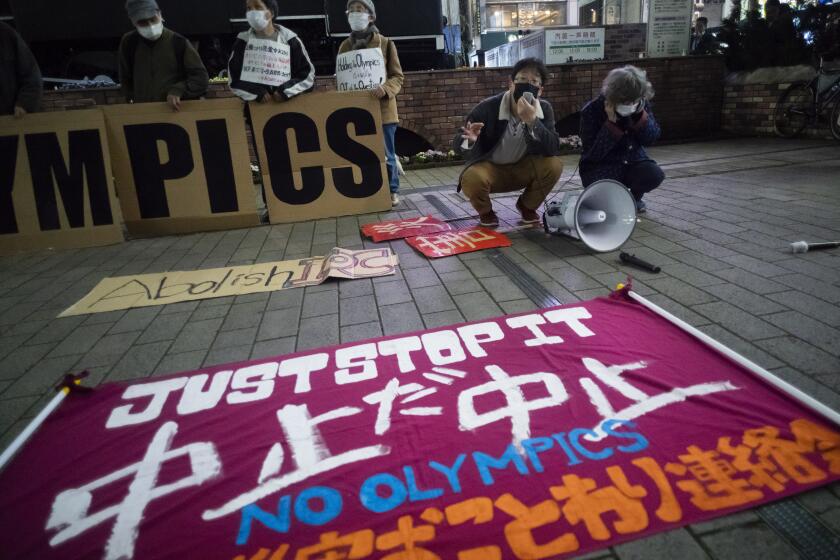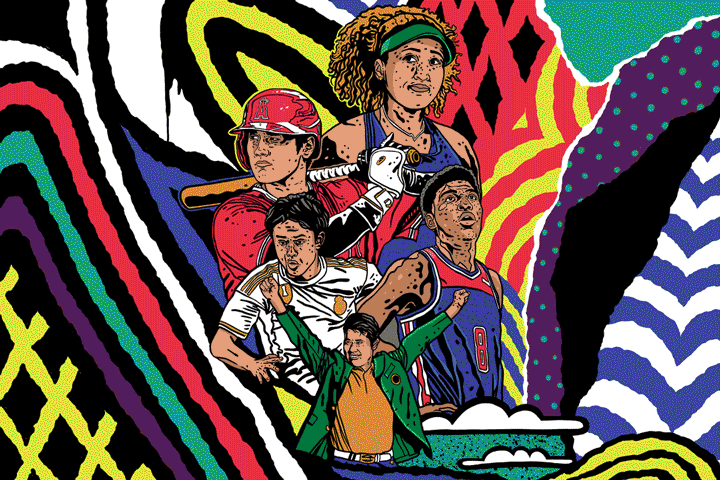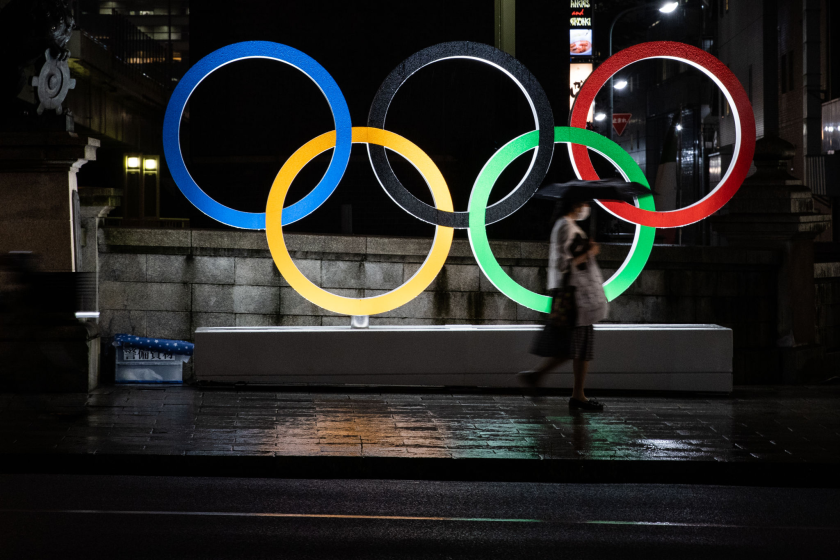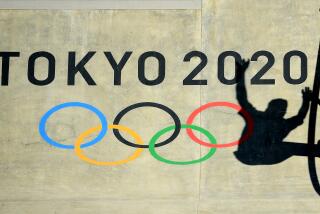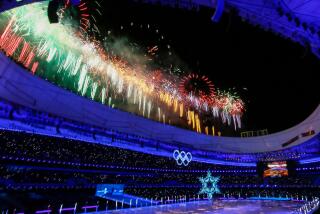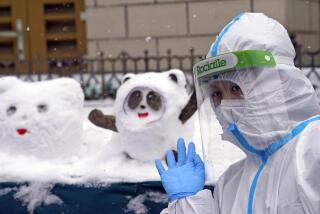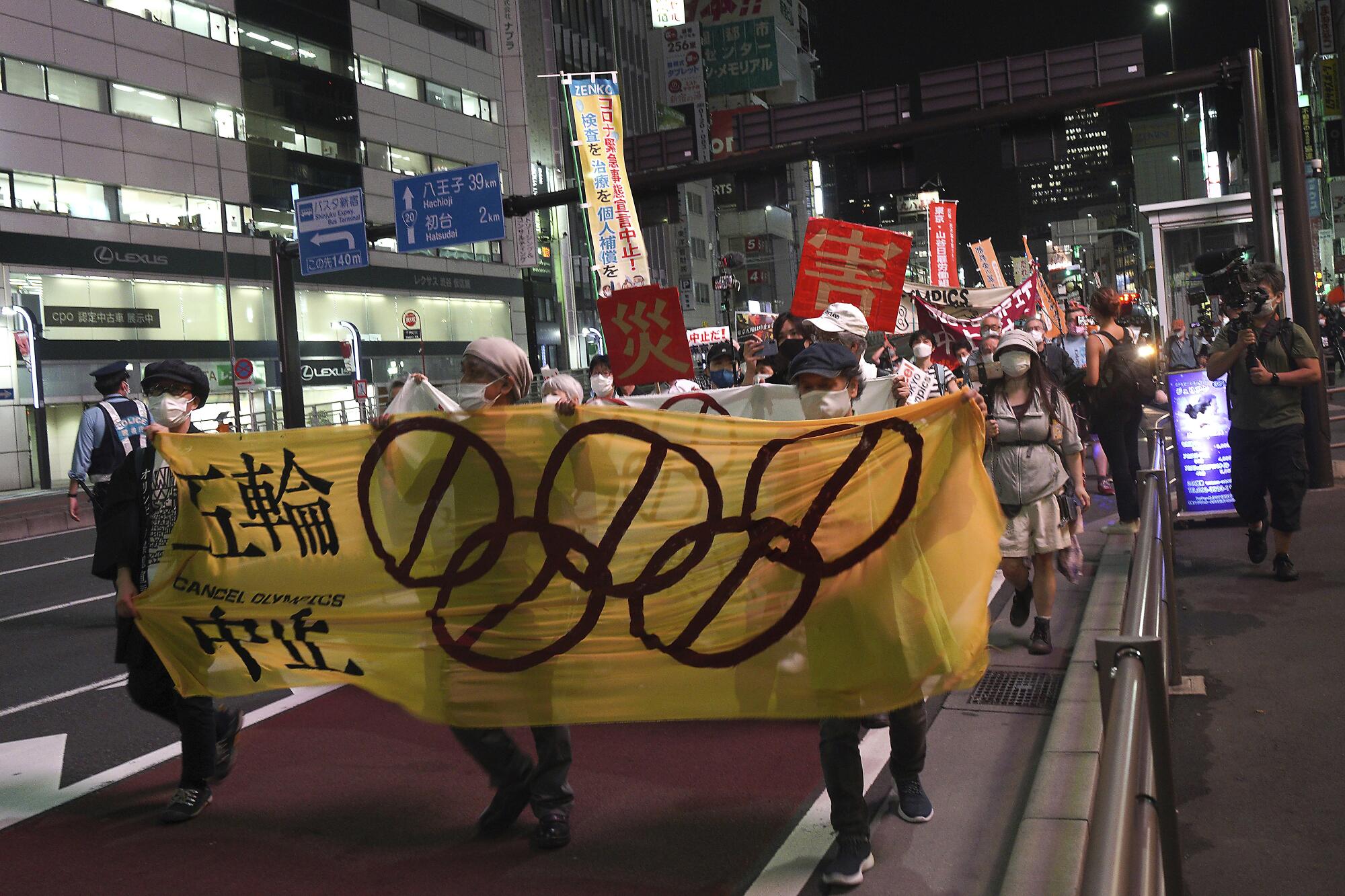
There’s always some variation of this debate, about whether the benefits of the Olympics justify the costs.
The exhibitions of the human spirit generally overwhelm the cynicism, which is why the Games remain more closely associated with Michael Phelps and the Fierce Five than, say, the abandoned aquatics center in Brazil or the debt that crushed Greece’s economy.
That’s how it used to work, at least.
This week, many of the world’s greatest athletes will gather in Tokyo, prepared to share their journeys with a global audience.
Simone Biles will look to defend the all-around women’s gymnastics title she won four years ago. A new generation of track and field stars, led by Michael Norman and Sydney McLaughlin, will attempt to revitalize a sport that has never entirely recovered from a drug scandal at the start of the millennium. Rikako Ikee already has the host country spellbound; the 21-year-old national-record-setting swimmer had just recovered from leukemia and still qualified in two events.
With 3% of its population vaccinated, and Tokyo and other prefectures under extended states of emergency, there’s no justification for Japan hosting the Olympics.
Winning the hearts of the world could be more difficult than it was in the past, and not just because there won’t be any fans cheering on athletes. The Games will be contested against the backdrop of unprecedented skepticism about the existential purpose of the Olympic movement.
Tokyo is under a state of emergency because of a fourth wave of the COVID-19 pandemic. Yet, despite widespread calls to cancel the Games, the city is opening its borders to tens of thousands of athletes, support staffers and, yes, journalists such as myself.
About the only person pretending the once-delayed Games are being staged for the public good is notoriously disingenuous International Olympic Committee President Thomas Bach, who recently referred to the Japanese people as “the Chinese people” before quickly correcting himself.
This is about money — specifically the broadcast rights fees that account for the majority of the IOC’s revenue.
Prime Minister Yoshihide Suga and the Japanese government want to recover whatever they can of the tens of billions of dollars that have been sunk into these Games. Doesn’t matter to them that medical resources will have to be redirected from a pandemic that has claimed nearly 15,000 lives. Doesn’t matter that less than 20% of the population is fully vaccinated.
“What will these Olympics be for and for whom?” Japanese Olympic Committee board member Kaori Yamaguchi asked in an editorial published last month by Kyodo News.
Subscribers get early access to this part of our Tokyo Olympics coverage
We’re offering L.A. Times subscribers first access to our preview of the 2021 games. Thank you for your support.
Yamaguchi won a bronze medal in judo at the 1988 Olympics. She understands the value of the once-every-four-years event as much as anyone.
And she wrote: “The Games have already lost their meaning and are being held just for the sake of them. … We have been cornered into a situation where we cannot even stop now. We are damned if we do, and damned if we don’t.”
The situation has shaken the country’s already fragile confidence in the government, which is seen as not only prioritizing money over public health but also to blame for a particularly slow vaccine rollout.
Distrust of the authorities has escalated to the point that Tokyo’s state of emergency is being largely ignored. While restaurants must close early and not sell alcohol, popular wards such as Shibuya and Shinjuku are as crowded as usual, people there told me.
Can the athletes triumph in this climate? Or will their achievements be overshadowed by the negativity?
That likely will be determined by whether the Olympics turn into a superspreader event.
In a perspective piece published this month by the New England Journal of Medicine, a group of four public and occupational health experts wrote, “We believe the IOC’s determination to proceed with the Olympic Games is not informed by the best scientific evidence.”
This is their moment: Shohei Ohtani, Naomi Osaka, Hideki Matsuyama, Naoya Inoue and more Japanese athletes shine in unique ways on the global stage.
Reached by phone last week, one of the authors, Michael Osterholm, said, “I still have major concerns about how safe the Olympics can be.”
The director of the Center for Infectious Disease Research and Policy at the University of Minnesota, Osterholm has advised the IOC and Japanese health officials on coronavirus countermeasures. He has provided feedback on the three playbooks released by Olympic organizers. They lay out safety protocols for staff, athletes and media.
Osterholm said he was concerned about the spread of the more transmissible Delta variant of the coronavirus, as well as fearing that outdated science could be behind plans for, say, plexiglass installations.
“You have an event that has largely planned for respiratory-droplets prevention,” he said. “The science is now convincingly showing that this is an airborne virus, largely, which means it’s like cigarette smoke, it will float wherever.”
As an example of how this could be problematic, he offered the athletes’ village.
“There’s been very little attention paid to the issue of ventilation,” he said. “Their answer was just open the windows. It’s going to be 90 degrees and humid in Tokyo, right?”
Osterholm was also bothered by the lack of specificity in the playbooks.
“How will they do testing, and what will be the frequency of that?” he asked. “What will be the quarantine process for people exposed to positive individuals? How will that all be followed up? We just really don’t know.
“At this point, we don’t have evidence that they’ve put in place the use of what we consider to be the top-grade respiratory protection, meaning N95 respirators, as opposed to just any other kind of face cloth covering.”
Japanese fans won’t be able to attend the Tokyo Olympics, but the Games are expected to be staged as scheduled.
Osterholm approved of the decision to ban spectators, but he wondered about local staffers and volunteers who live in Tokyo and would be coming in and out of the so-called Olympic bubble.
“What will be their potential risks to the players and the team members as well as vice versa?” he asked.
Osterholm urged Olympic organizers to learn from the NFL, which he also advised last year.
“The testing program was second to none,” he said. “The contact tracing efforts were extensive. They kept small potential clusters of cases from growing into large clusters of cases by really very proactively doing testing and in follow-up.”
Osterholm pointed out how the safeguards allowed the NFL to play an entire season before a vaccine was available.
“If we had an NFL approach with the Olympics right now, that would sure help,” he said.
Osterholm said he wanted the Olympics to be successful.
“I mean, the world needs that moment right now,” he said. “We need it. So, we’re not naysayers out here saying that you can’t and shouldn’t have it. But just all the issues I just laid out, [there are still] great questions left.”
However unconventionally, these Olympics have already brought the world together.
This time, not in anticipation of world-class athleticism but by exhibiting humanity’s shared values.
Turns out we’re all the same when billions of dollars are the stake.
Months after tennis star Kei Nishikori stated the loss of a single life would be one too many, Japan will risk the safety of its citizens in a desperate effort to stage an event that previously had to be postponed by a year.
How the Games unfold from a public health standpoint will ultimately decide whether these Games represent the best or worst of humanity, whether the enduring image will be that of Biles flipping high in the air or of a frightening health crisis.
More to Read
Go beyond the scoreboard
Get the latest on L.A.'s teams in the daily Sports Report newsletter.
You may occasionally receive promotional content from the Los Angeles Times.

